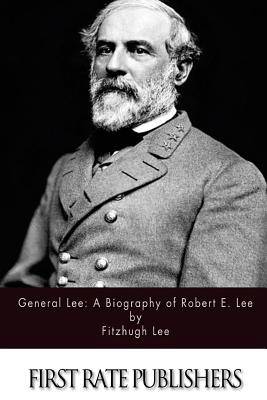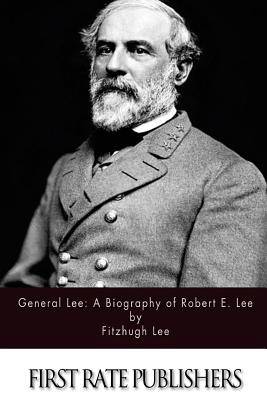
- Afhalen na 1 uur in een winkel met voorraad
- Gratis thuislevering in België vanaf € 30
- Ruim aanbod met 7 miljoen producten
- Afhalen na 1 uur in een winkel met voorraad
- Gratis thuislevering in België vanaf € 30
- Ruim aanbod met 7 miljoen producten
Zoeken
€ 17,45
+ 34 punten
Uitvoering
Omschrijving
One of the most famous generals in American history is one that fought against the Union during the Civil War. Robert E. Lee is still remembered and even praised even though he led the Confederate Army of Northern Virginia against the Union for about 3 years of the war.
Lee is celebrated for giving the Union Army of the Potomac trouble for most of the war, forcing Lincoln to fire several generals and defending Richmond until April 1865. As a result, the South loved him, and even today many Southerners look at him as the perfect leader.
However, Lee wasn't perfect, as evidenced by his defeat at Gettysburg. And ultimately, he wasn't working with enough to win the war; both of his invasions of the North ended with strategic defeats, including at Antietam.
Despite his defeats, Lee was revered by Confederate veterans, and this biography was written by his nephew Fitzhugh, who was a cavalry officer in Lee's army for much of the war. Naturally, Fitz Lee defends his uncle against most of the perceived criticisms.
Lee is celebrated for giving the Union Army of the Potomac trouble for most of the war, forcing Lincoln to fire several generals and defending Richmond until April 1865. As a result, the South loved him, and even today many Southerners look at him as the perfect leader.
However, Lee wasn't perfect, as evidenced by his defeat at Gettysburg. And ultimately, he wasn't working with enough to win the war; both of his invasions of the North ended with strategic defeats, including at Antietam.
Despite his defeats, Lee was revered by Confederate veterans, and this biography was written by his nephew Fitzhugh, who was a cavalry officer in Lee's army for much of the war. Naturally, Fitz Lee defends his uncle against most of the perceived criticisms.
Specificaties
Betrokkenen
- Auteur(s):
- Uitgeverij:
Inhoud
- Aantal bladzijden:
- 250
- Taal:
- Engels
Eigenschappen
- Productcode (EAN):
- 9781494450878
- Verschijningsdatum:
- 11/12/2013
- Uitvoering:
- Paperback
- Formaat:
- Trade paperback (VS)
- Afmetingen:
- 152 mm x 229 mm
- Gewicht:
- 340 g

Alleen bij Standaard Boekhandel
+ 34 punten op je klantenkaart van Standaard Boekhandel
Beoordelingen
We publiceren alleen reviews die voldoen aan de voorwaarden voor reviews. Bekijk onze voorwaarden voor reviews.











